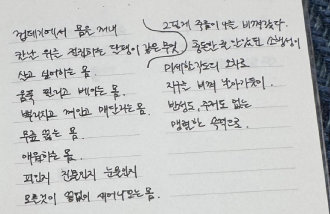Signs of U.S. austerity drive Asian stock markets down
Signs of U.S. austerity drive Asian stock markets down
Posted January. 22, 2022 07:26,
Updated January. 22, 2022 07:26
With the consistent downward trends of the U.S. Nasdaq being the case, the KOSPI dropped by almost one percent to go lower than the last year’s bottom of 2,839.01. Major Asian stock markets alike saw a decline including Japan, China and Taiwan as well.
As of Friday, the KOSPI ended up with 2,834.29, 0.99 percent or 28.39 points down from the previous day. It was the lowest point in around one year since the market recorded 2,820.51 on Dec. 29, 2020. The KOSDAQ went down to 942.85 by 1.65 percent.
Net sales of 223 billion won and 643.8 billion won by foreign investors and organizations, respectively, drove down prices in the securities market. Samsung Electronics and SK Hynix, the top two companies in terms of total market value, suffered deep declines of 1.18 percent and 4.80 percent, respectively.
Major Asian stock markets responded with fluctuations. The Nikkei 225 of Japan, the SSE Composite Index of China and the TAIEX Index of Taiwan alike plunged by 0.90 percent, 0.91 percent and 1.75 percent, respectively.
Centered around tech stocks, the decline of 1.30 percent in the Nasdaq on Thursday (local time) had a negative influence on major Asian stock markets including South Korea. Risk aversion is spreading across the globe as the U.S. long-term government bond interest rate rose amid concerns about the U.S. Federal Reserve’s early austerity actions. Fluctuations are witnessed in even some stocks that have fared well since the COVID-19 pandemic. For example, Netflix nosedived by 20.22 percent in post-market trading due to a plateaued incoming of new paid members coupled with growing competition.
The bitcoin price dropped by 7.39 percent compared to 24 hours ago to go below the 40,000-dollar threshold as of 4:30 p.m. on Friday, according to global virtual asset data website CoinMarketCap.
minwoo@donga.com · forward@donga.com







